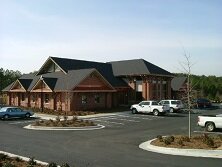Risk Factors for Lung Cancer
A person may have several risk factors and not develop lung cancer. While others may have no risk factors and still get lung cancer. There are many things that may put you at risk for developing lung cancer.
Risk factors include:
- Smoking/ Secondhand smoke
Smoking is thought to cause 90% of all lung cancers. Carcinogens, found in tobacco, damage the cells of the lung and eventually can lead to cancer formation. By smoking, your risk for developing lung cancer increases by 10 to 25 times. - Asbestos
Asbestos exposure is also thought to cause lung cancer. This group of minerals is found in some types of insulation and is used in shipbuilding and certain car repairs. The tiny particles of asbestos can get caught in your lungs and cause damage that leads to cancer. - Talc
Talc in its original form can contain asbestos. However, talcum products, such as baby powder and cosmetic talcum powder, have been asbestos-free since 1973. Studies show that talc miners may be at a greater risk for lung cancer development. - Radon
Radon is an undetectable radioactive gas that can be found in some homes or buildings. More often, it is found in basements. - Occupational Exposure
Occupational exposure to carcinogens may be unavoidable for some people. A few carcinogenic (cancer causing) agents may include: Radioactive ores (i.e. uranium), Arsenic, Vinyl chloride, Nickel chromates, coal products, mustard gas, Chloromethyl ethers, and diesel exhaust. - Family History
Family History of lung cancer may increase your risk. This may be due to shared genetics or shared factors such as exposure to smoke or radon in the home. - Personal History
Personal History of lung cancer or a history of radiation treatment to the chest may also increase the risk for lung cancer development.





